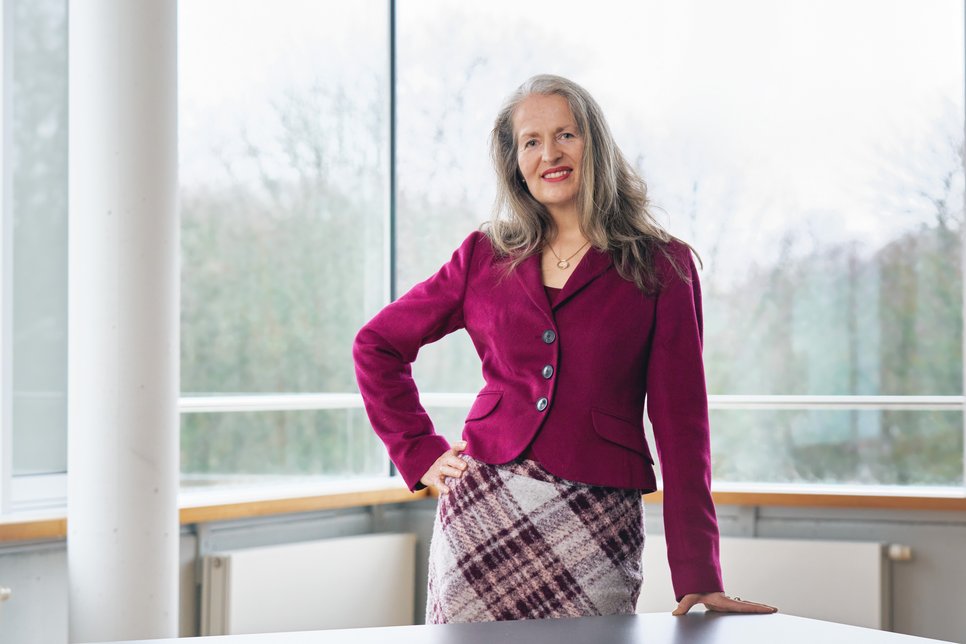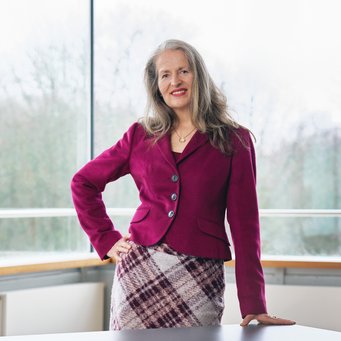
International Women’s Day – Perspectives on a Career in Legal Scholarship
For more than 100 years, women have been able to study law in Germany. Today, the equal opportunity that women enjoy in undertaking scholarship and research is not just an expression of social justice, it is a foundation for innovation and adaptation to our future world. Although the percentage of women studying law now stands at roughly 60 per cent, there are still comparatively few female professors. As of 1 January 2024, Professor Anne Röthel became the first women appointed as a Director at the Max Planck Institute for Comparative and International Private Law. How does she the prospects for women in the world of legal scholarship?
How does legal scholarship profit from having more women in its ranks?
Anne Röthel: It’s simple: More women working as legal researchers means more diversity. And, as stated by the German Science and Humanities Council (WR), diversity is a catalyst serving to broaden research perspectives. But it can be put into even more concrete terms: More woman working in the field of legal scholarship increases the chances of legal scholarship being close to – and not distant from – society. And this is extremely important for such a socially influential academic field. Ultimately, legal research studies how law arises, what it accomplishes, and how it develops further. It also asks what makes for good law. But such questions mean that having “more women” producing legal research is only a first step towards diversity.
What do women need to be more visible and influential as legal scholars?

Anne Röthel: I think that visibility requires, first, the courage to raise your voice and make yourself seen and heard. Additionally, visibility needs to be fostered by other individuals and, above all, supported by networks. In my experience, influence in the field of law has a lot to do with reputation, but reputation accrues in ways that are often not easily identified. It is not only academic excellence that plays a role. Moreover, who knows exactly how such excellence is recognized? It relates to factors such as your academic background, meaning that the question of where you come from becomes important. Recognition also depends on having published in certain formats – in renowned journals, for example – or having been invited to certain conferences. This explains why it is so important for young women to receive mentoring. It’s not just about empowerment in the sense of encouragement – there’s no shortage of that. It’s about providing strategic support and advice.
What advice would you give to young female researchers pursuing the career path of legal scholarship?
Anne Röthel: Make a conscious effort to find an environment in which you receive support, mentoring, strategic advice, and encouragement. In terms of your professional choices, avoid any sense of predetermination. Be strategic. I can’t stress this last point enough. The decisive question should be: What are my unique skills? What do I offer that others do not offer? Where will legal scholarship be most vibrant in five years’ time? Your chances of scholarly success will be greater if you are active in a field that is perceived as relevant. And a word about teaching: Consider it a trump card that women are generally attributed a certain competence and authority in this regard. But I’m hardly suggesting that female researchers should limit their horizons based on such preordained praise. It has been my experience that young women will often invest considerable time and effort in teaching, sometimes at the expense of their research and how they are perceived academically.
Images:
Header image: © shutterstock/AJP
Anne Röthel: © Max Planck Institute for Comparative and International Private Law / Patrice Lange












